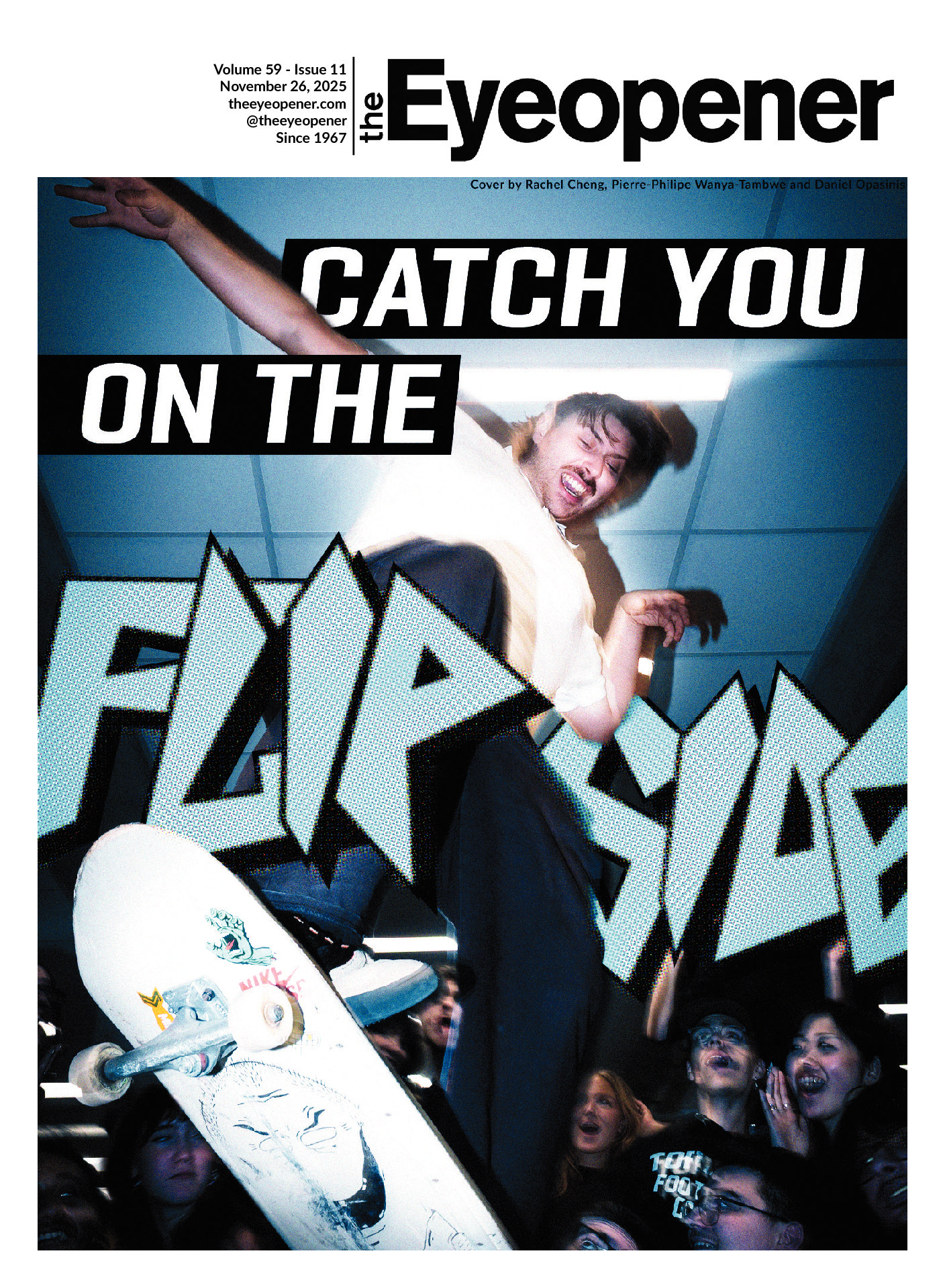Markham residents were able to cast votes on the web this week, while attempts to bring digital polling in T.O. stalled. Is e-voting too flawed to work, or is the paper ballot passe? Noelle Munaretto finds out.
Crowded community centres, registration desks, white cardboard screens, little pencils and tiny ballots are inescapable parts of voting.
But, some people argue, they don’t have to be.
Cities such as Markham have integrated the power and the widespread appeal of the internet into the way their city votes.
The result is a new medium for casting ballots that is challenging Markham’s surrounding cities to keep up.
This Monday, Torontonians hit the polls. Critics are debating whether e-voting can actually increase turnout, but the Globe and Mail reported that the use of e-voting in Markham’s 2003 municipal election helped increase voter turnout by 300 per cent.
Peter Milczyn, a city councillor in the Etobicoke area, is a strong supporter of e-voting — but voter turnout isn’t his motivation. Instead, he believes that voting online is about accessibility and efficiency.
“It’s just another avenue of making the democratic process more open, more accessible,” he says. “Various organizations conduct membership votes on-line and city hall should be able to keep up.”
Milczyn is also the director of Toronto’s E-City Committee, a group that wants to make city services available to the public. That includes eliminating paper trails, broadcasting city hall meeting and implementing a 24-hour phone hotline that people can use to ask government-related questions and file complaints. Milczyn adds e-voting to that list as well, but said it would only take place on advance voting days.
“I see it as an additional way of supplementing advance voting. I wouldn’t want to see it taking place on election day,” he says. “It’s not about replacing the physical act of voting.
“We have a very secure, very reliable, well-organized election system in Toronto and now we can look to expand upon that.”
Though electronic voting has been used at Ryerson, Nora Loreto, RSU vice-president education, says she prefers traditional voting methods.
“I’m pretty much against online voting,” she says. “People always say it increases turnout, but the voting booth elections always have much higher turnouts.”
U of T’s Student Administrative Council switched from e-voting to paper ballots earlier this year in order to increase voter turnout, she adds.
“How do you vote for the mayor, the MP, or the MPP? You go to a poll station. If you don’t care enough to go to a poll, then you shouldn’t be voting in the first place,” she says.
Two years ago, Loreto was involved in a campaign protesting the use of e-voting for a referendum about increasing Ryerson Athletic Centre ancillary fees. The fee was to increase by $130, but it would have replaced the general membership cost students regularly pay for RAC memberships.
“We were worried people would be forced to vote on the spot, because essentially every computer became a polling station,” she says.
But Dave Dubois, director of programming for the RAC, painted a very different picture of the vote. He said students opposed to fee increase hung posters encouraging people to go to the voting website and vote ‘No — and that they stood in front of the campus polling stations handing out similar, false pamphlets.
“We would never go to another referendum electronically unless the ‘No’ side allows us to do what they did, which is standing in front of computers and telling people to vote a certain way,” he says.
While on-the-spot campaigning would be as prohibited with an electronic vote as it would with the traditional method, Milczyn believes Toronto is very risk-averse when it comes to technology. Also, he says, many city councillors wouldn’t want to dole out the cash.
And in a world where internet hackers become craftier and where computer viruses run rampant, the idea of creating a completely secure interface is a challenge that faces e-vote software developers.
“Obviously, the security of the process is paramount. My understanding of the system is that it’s working very well. Markham hasn’t had any problems,” Milczyn says. “There would be passwords and user IDs. It’s not just Googling and clicking a box on an online poll.”
Computers would be available at polling stations and public libraries and schools would be promoted as possible venues for those without home computers. Milczyn says the possibility of e-voting in Toronto is an important issue and one that seems logical in a world where “we can do banking online, we can order books online and we can order anything online,” he says.
As for voter turnout, Milczyn says online voting wouldn’t have a huge impact on the numbers.
“But, if (it) increased voter turnout by one or two per cent it would be great,” he says.
The decision to have an online referendum was made by the university, Dubois says, adding that the structure of the vote — along with the backlash — compromised the results.
“Online voting is great when you have an election where it’s candidate against candidate,” he says. “Then you can hold candidates responsible for the rules. But when you have an online referendum, how do you hold a side accountable?”
Although Ryerson’s steering committee eventually stepped in to remove the posters, the results swung heavily in favour of the ‘No’ side, and the ancillary fee was never increased.
Still, Dubois believes there are both pros and cons to e-voting.
“There’s instant communication, but you see the problems it creates. It allows the bad elements in this world to communicate as well,” he says.
There has also been speculation as to whether e-voting increases the desire for youth to participate in elections.
First-year RTA student Zosia Mackenzie believes it would appeal to younger voters because it’s quick and convenient.
“I’d e-vote because it’s very accessible and I wouldn’t have to leave my house. I could do it from the comfort of my own home and I also wouldn’t have to wait in line,” she says.
Her friend Sarah Portelli, a first-year life sciences student at U of T, disagrees.
“Are people too lazy to go, get out of their house, and vote?” she says.
business@theeyeopener.com











Leave a Reply